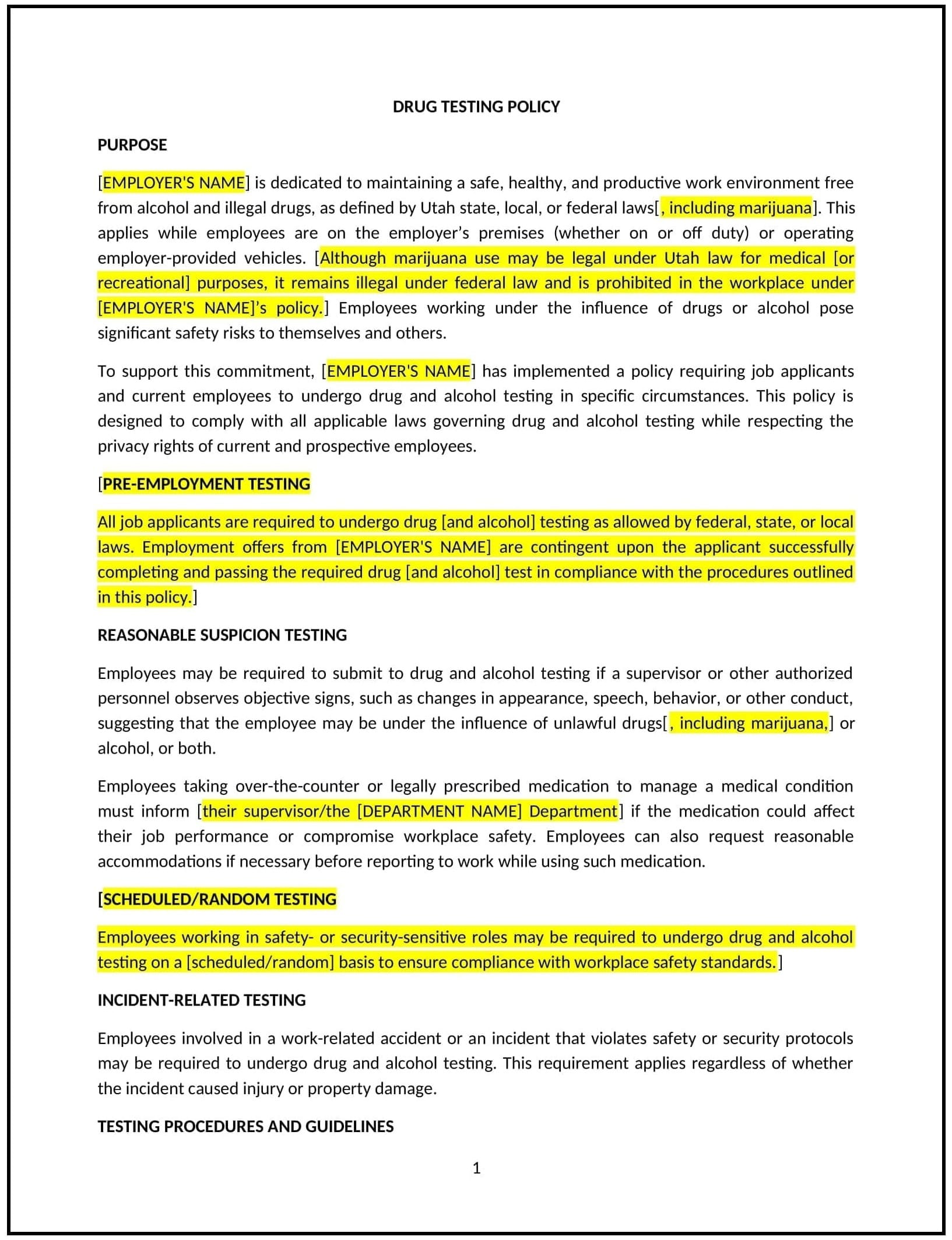Got contracts to review? While you're here for policies, let Cobrief make contract review effortless—start your free review now.

Customize this template for free
Drug testing policy (Utah)
This drug testing policy is designed to help Utah businesses establish guidelines for drug testing employees to maintain a safe and productive work environment. It outlines the types of testing, procedures, and consequences for positive results, promoting compliance with state and federal laws.
By adopting this policy, businesses can reduce workplace risks, promote safety, and align with general best practices for drug testing programs.
How to use this drug testing policy (Utah)
- Define testing types: Specify the types of drug testing conducted, such as pre-employment, random, or post-accident testing.
- Establish procedures: Outline the steps for conducting drug tests, including sample collection and laboratory analysis.
- Address confidentiality: Ensure test results are handled confidentially and shared only with authorized personnel.
- Enforce consequences: Specify disciplinary actions for positive test results, such as suspension or termination.
- Provide support: Offer resources for employees struggling with substance abuse, such as counseling or rehabilitation programs.
- Train employees: Educate employees on the policy, testing procedures, and the importance of a drug-free workplace.
- Review and update: Regularly assess the policy to ensure it aligns with evolving laws and business needs.
Benefits of using this drug testing policy (Utah)
This policy offers several advantages for Utah businesses:
- Promotes safety: Reduces workplace accidents and injuries caused by impaired employees.
- Enhances productivity: Ensures employees are fit for duty and able to perform their jobs effectively.
- Aligns with legal requirements: Helps businesses comply with state and federal drug testing laws.
- Reduces liability: Minimizes the risk of lawsuits related to workplace accidents or substance abuse.
- Supports employee well-being: Provides resources for employees struggling with substance abuse.
Tips for using this drug testing policy (Utah)
- Communicate the policy: Share the policy with employees and include it in the employee handbook.
- Provide training: Educate employees on the policy, testing procedures, and the importance of a drug-free workplace.
- Monitor compliance: Regularly review testing procedures and results to ensure adherence to the policy.
- Address violations promptly: Take corrective action if employees violate the policy or test positive for drugs.
- Update regularly: Assess the policy annually to ensure it aligns with evolving laws and business needs.